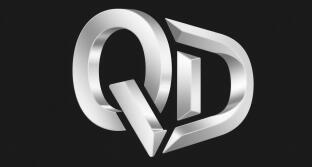The intake manifold is a key channel connecting the throttle valve and the cylinders. It is responsible for evenly distributing air to each cylinder. QD is a manufacturer and exporter specializing in automotive castings, with many years of experience in the intake manifold casting field.

Intake Manifold Material Selection
Choosing the right material ensures a durable and functional intake manifold. Different vehicles have different engine requirements, and therefore require different materials.
| Material | Advantages | Application |
| Cast iron | High strength. Wear resistance. High temperature resistance. Long service life | Heavy trucks, diesel vehicles, and vehicles with complex working conditions |
| Aluminum alloy | Lightweight. Quick heat dissipation. Can effectively reduce the overall weight of the engine | Family cars, light trucks, lightweight models |
| Ductile iron | It has both the high strength and toughness of cast iron. Its impact resistance is better than that of ordinary cast iron. | Models with large vibrations when the engine is running |
QD Auto Parts Intake Manifold Casting Process Analysis
QD possesses a variety of advanced casting techniques. We can select the most appropriate process based on the customer’s order. Whether it’s a small-batch customization or large-scale production, we guarantee quality:
Sand Casting

- Process: Sand mold making → Metal smelting → Casting → Sand cleaning and finishing
- Advantages: Mature and stable process. Capable of producing complex castings. Highly cost-effective.
- Suitable for: Small to medium-volume production, complex cast iron or ductile iron intake manifolds
Investment Casting

- Process: Wax pattern making → refractory coating → dewaxing → mold firing → metal pouring → cleaning and polishing
- Advantages: High casting precision. Complex internal structures can be achieved. Reduces subsequent processing steps.
- Suitable for: High-end vehicle models requiring strict intake manifold dimensions and a smooth surface.
Die Casting Process
- Process: Mold preheating → Metal melting → High-pressure die casting → Deburring
- Advantages: High production efficiency. High casting dimensional accuracy. Excellent surface finish. Suitability for mass production.
- Suitable for: Aluminum alloy materials are used. High-volume production is required.
QD’s quality assurance: no leaks and accurate dimensions are the bottom line.
The most critical concern with intake manifolds is leaks, which can cause the engine to sluggish and potentially malfunction. QD has established a comprehensive quality control system, from mold creation to finished product delivery:
During the design phase, QD’s professional design team will discuss engine specifications with the client, optimizing the intake manifold duct shape to ensure even air distribution to each cylinder. During production, castings are thoroughly inspected using testing equipment, focusing on sealing and dimensional accuracy. Defects such as sand holes and cracks are ensured to prevent substandard products from entering the market.

Choose QD: Make cooperation more valuable
Flexible Processing and Customization
Whether you’re looking for a small batch of special models or a large-volume, standard model, or a material like cast iron, aluminum alloy, or ductile iron, QD can handle it all. We’ll select the most appropriate casting process based on your vehicle model and production volume, ensuring a balanced balance between product performance and cost.
Stable Production Capacity and Uninterrupted Delivery
QD operates its own independent factory, as well as partnered factories, with numerous production lines. With ample production capacity and flexible scheduling, we guarantee stable supply regardless of order size. Customers don’t have to worry about production shortages during peak seasons or delivery delays. We plan production in advance to ensure on-time delivery.
Full-Process Service. Hassle-Free and Efficient
QD provides professional service throughout the entire process, from material selection and mold design to production progress tracking and after-sales feedback. We’re always available for communication with you, eliminating the need for customers to worry about technical integration challenges.
Extensive export experience and consistent quality
As an export-oriented company, QD is familiar with the requirements for auto parts in various countries. Our products not only meet the needs of domestic customers but also adapt to vehicle standards in different regions around the world. Our intake manifold castings meet various standards, eliminating the need to worry about customs clearance or quality inspection issues.

FAQ
1. What inspections are required for intake manifold castings before shipment?
QD primarily inspects leak-tightness (to prevent air leaks), dimensional accuracy (to ensure proper fit), and surface quality (to avoid defects such as burrs and sand holes).
2. Which intake manifold is more durable, aluminum alloy or cast iron?
Cast iron is wear-resistant and heat-resistant, making it suitable for heavy vehicles with complex operating conditions.
Aluminum alloy is lightweight and dissipates heat well. It’s more commonly used in family cars.
Under normal use, both offer a lifespan that meets vehicle requirements.
3. Which casting process is suitable for small-batch custom intake manifolds?
Sand casting is recommended for small-batch customization. It offers flexible mold adjustments and can accommodate complex structures. It also offers more manageable costs for small-batch production. It’s ideal for special models or trial runs.
4. Does the intake manifold casting have burrs that need to be removed?
Yes, they must be removed. Burrs can cause loose installation and could also cause parts to break off and enter the engine. Affecting proper operation. QD always trims and polishes castings before they leave the factory.
5. What are the consequences of choosing the wrong material when casting an intake manifold?
Incompatible materials can affect performance.
For example, choosing aluminum alloy for a heavy-duty vehicle may not be strong enough and may easily break.
Choosing cast iron for a family car will increase weight and lead to higher fuel consumption.
